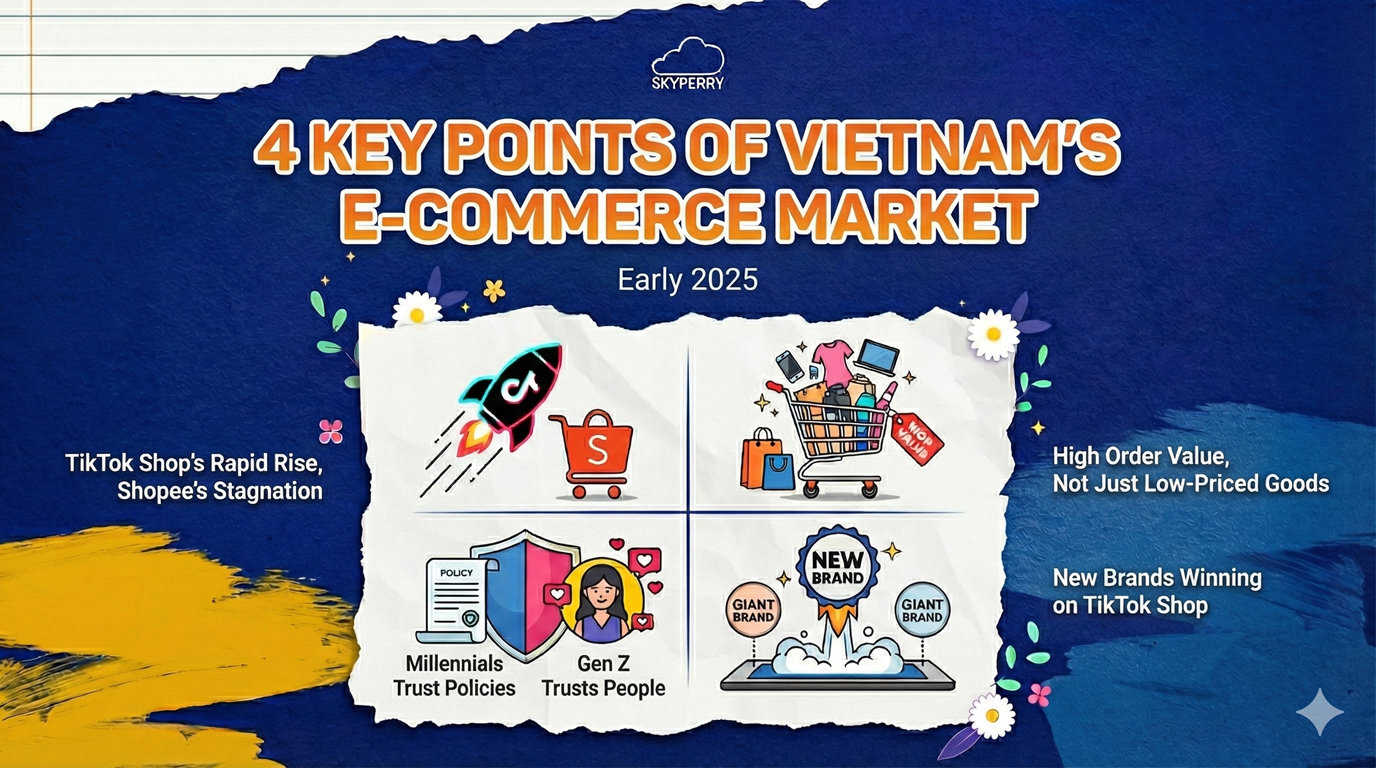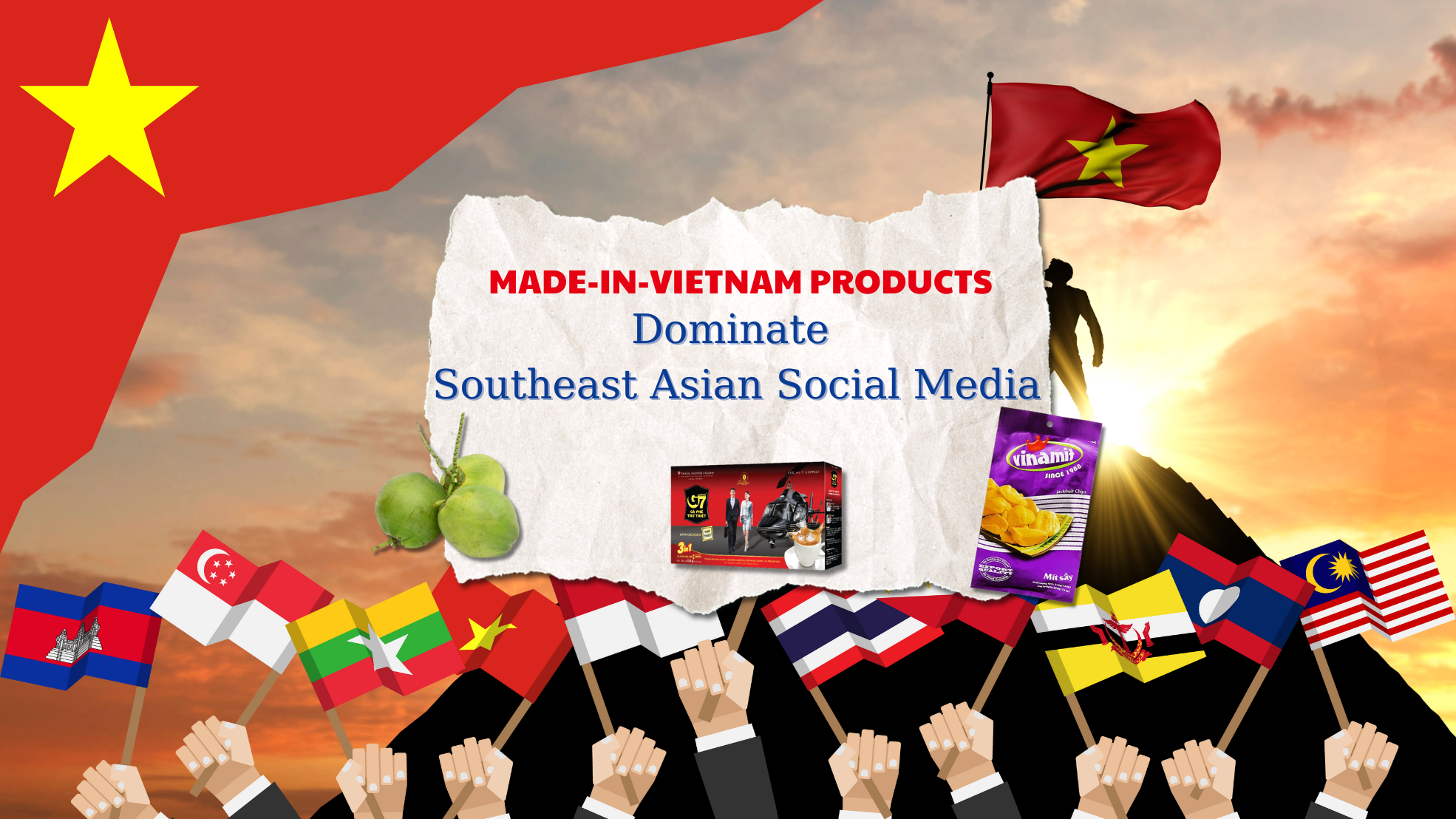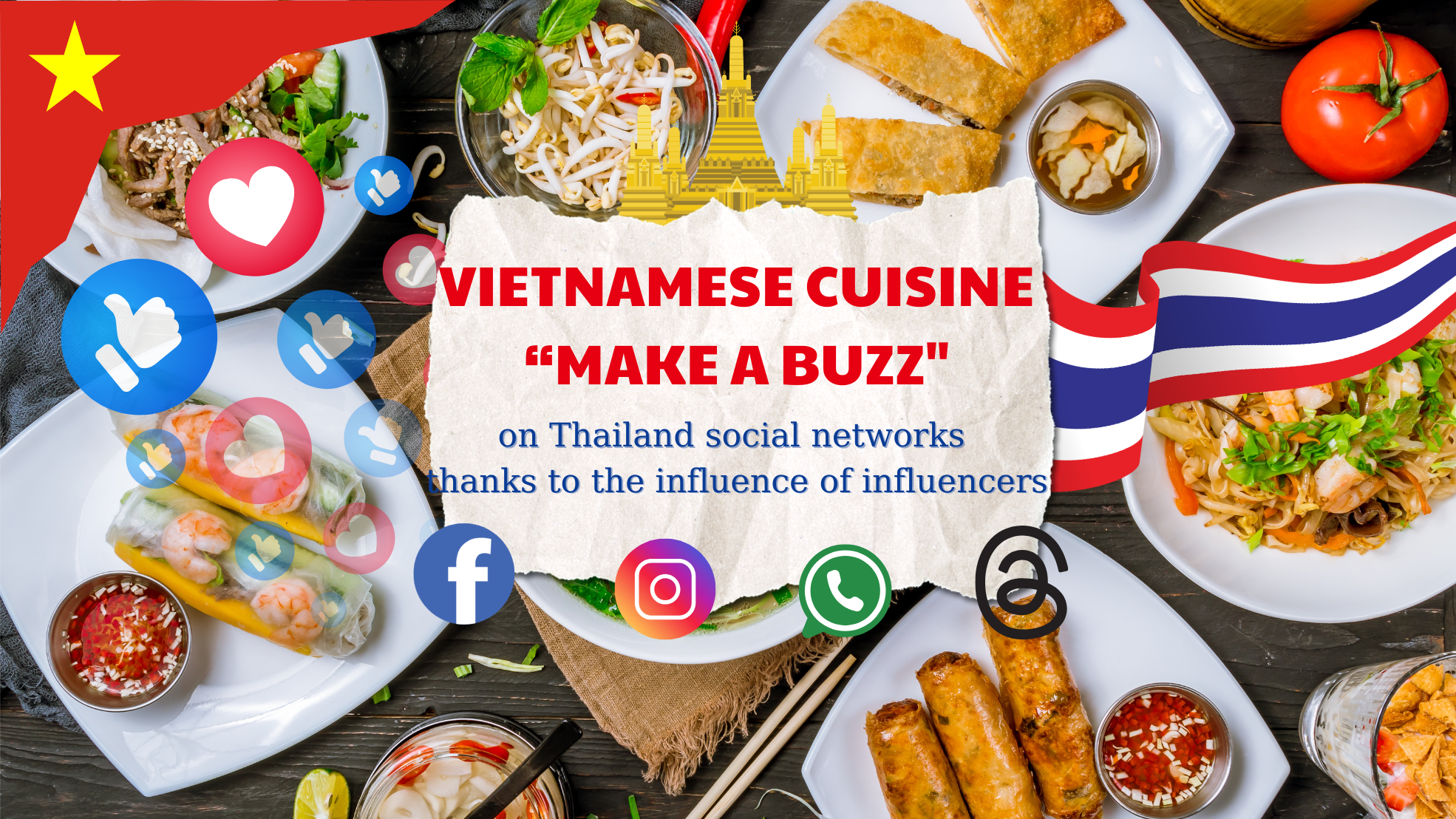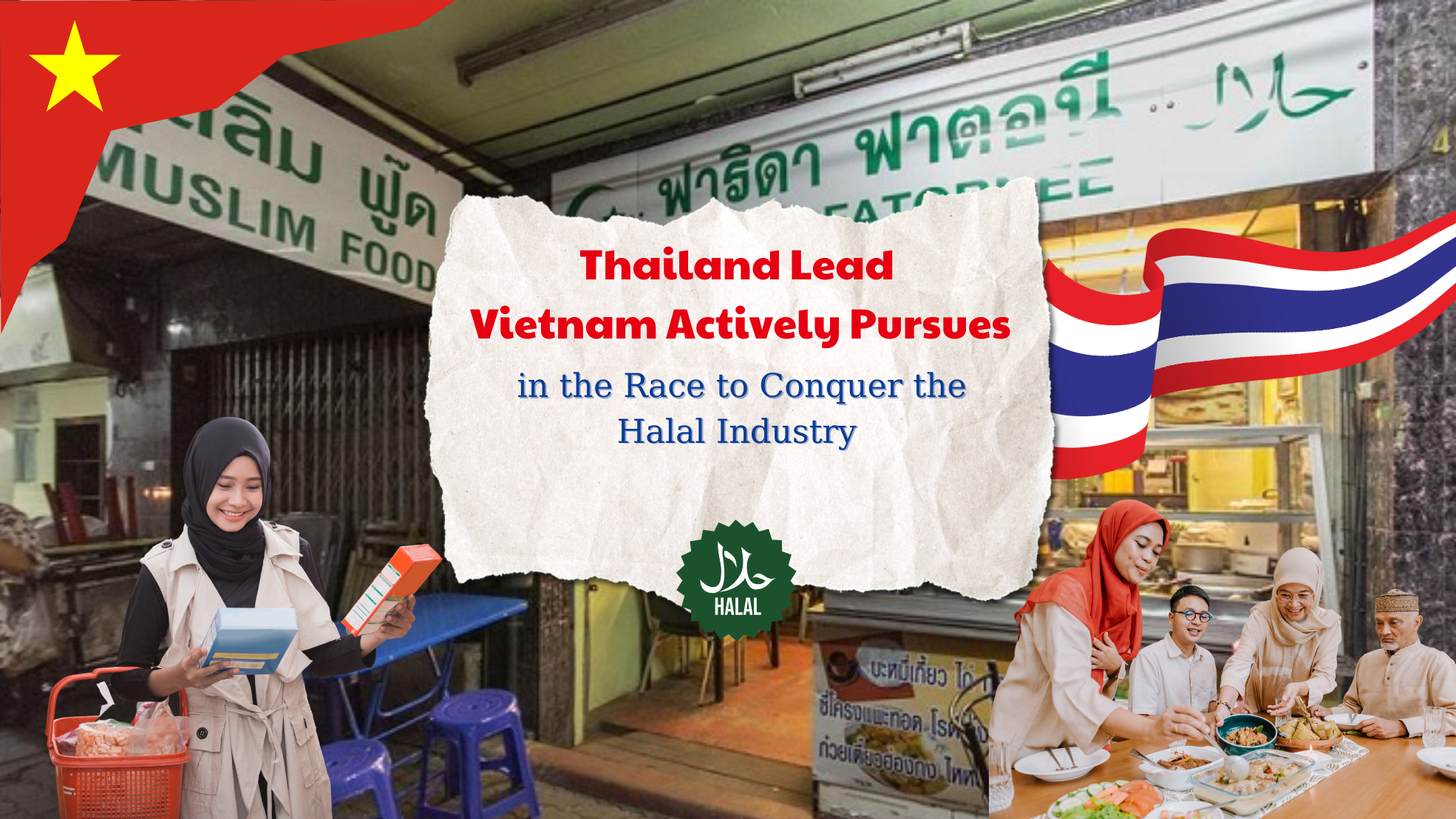Health-Focused Food Trends in Thailand
In recent years, Thailand’s food and beverage industry has been increasingly geared towards a consumer future centered on health, sustainability, and robust innovation. Consumers are becoming more health-conscious, maintaining increasingly healthy lifestyles and eating habits. Simultaneously, plant-based diets are gaining popularity as consumers seek alternatives to traditional meat-based recipes.
It can be said that the country’s food industry is being strongly driven by the health trend. Moving into 2025, this trend is being elevated by even more complex demands.
Most notably, Thai consumers are choosing food to meet specific health needs. For instance, in 2024, gut health received increased attention due to the country’s preference for sour and spicy dishes. Consequently, consumers sought products containing probiotics and prebiotics to enhance immunity. The concept of “Functional Health” also emerged from this trend, with consumers looking to supplement their diets with added nutrients to boost energy and daily performance.
On the other hand, consumers are moving beyond fleeting health fads and are increasingly personalizing their choices to suit their individual needs. The Thai middle class is initiating the “epigenetics” trend, which involves adjusting lifestyle and consumption choices based on their genetic predispositions. They are exploring cell analysis tools to understand their bodies at a cellular level, aiming to enhance their personal health knowledge.
Healthy Living Influences Beauty and Exercise
The healthy living trend is also reflected in both beauty and exercise. Thailand, with its developed beauty industry, is also emphasizing health and beauty in parallel. Surveys conducted by Watsons on consumer trends for 2025 revealed that approximately 80% of consumers reported starting to take vitamins, with many choosing one to two types per month, investing between 1,000 to 3,000 baht (approximately 700,000 to 2 million VND) even amidst economic recession. This reflects that consumers are not only seeking beauty solutions but also prioritizing long-term health from within.
They are also increasingly maintaining an active lifestyle, engaging in exercise due to a cultural emphasis on appearance in the “Land of Smiles.” This lifestyle is heavily influenced by Thai influencers who promote a balanced and healthy physique. Under the sports movement, many events such as running, cycling, and triathlons are attracting large numbers of participants. Additionally, the Thai government is encouraging citizens to exercise through the “Healthy Thailand” campaign. The government also organizes free or low-cost sporting events for the general public. Gym chains like Fitness First, Virgin Active, and Jetts Fitness are also rapidly expanding.
Relaxed Lifestyle, Love for Art, Beauty, and Enjoying the Present
Thai people are renowned in the region for their relaxed culture and appreciation of the present moment. They have a particular fondness for culture and performing arts. As soon as the workday ends, restaurants and eateries light up, and stages for performances are quickly set up. Within minutes, the streets are filled with music and singing late into the night.
Furthermore, young Thais enjoy investing in personal experiences and are open to new things. Thais spend a significant amount on cosmetics, especially natural and health-focused products. Thai women of all ages and professions enjoy makeup and investing in their appearance.
Due to their love for art, Thais appreciate products with strong cultural and handcrafted value, especially souvenirs and handicrafts, particularly unique items. Because they enjoy investing in personal experiences, Thai consumers desire to experience novel products and are willing to try foreign brands. Products that invest in creativity, continuously update with trends, focus on user experience, and consistently offer unique value will retain consumers.
Opportunities for Vietnamese Goods in Thailand
Recent shifts in the Thai market are opening up numerous opportunities for Vietnamese goods to enter this market.
Since 2024, the Thai government has been strengthening measures to limit the influx of cheap Chinese goods. Meanwhile, Vietnam and Thailand, as ASEAN member states, benefit from intra-regional free trade agreements, especially ATIGA. As Chinese goods face restrictions, Thailand will prioritize imports from regional partners, including Vietnam. Vietnamese goods, with their competitive pricing and better quality compared to cheap Chinese products, will find it easier to penetrate the Thai market.
Vietnamese agricultural products have good competitiveness in Thailand. Firstly, Vietnamese dried fruits often retain their natural flavor, aroma, and are less sweet than similar products from Thailand. This appeals to the middle class in Thailand, who are increasingly opting for lower-sugar options. In terms of technology, Vietnam has invested in advanced processing technologies such as freeze-drying, vacuum drying, and sublimation drying, which help products retain nutritional value, color, and flavor better, while also meeting relatively stringent quality standards in Thailand.
Vietnamese cuisine is rich in creativity. Based on basic ingredients, Vietnamese producers utilize new processing methods or combine them with new flavors to create uniqueness. Some dried fruit products are supplemented with spices or creatively processed, such as crispy dried jackfruit, honey-dried bananas, or coffee with added unique flavors like instant coffee with salt, egg coffee, or coconut coffee. This creates novel and unique experiences that Thai people enjoy exploring.
The growing trend of exercise and sports participation also leads to a demand for good quality sportswear in the affordable segment. Vietnam has a developed garment industry, benefiting from low labor costs, especially its strength in knitted fabrics suitable for sportswear. If Vietnamese sportswear brands quickly grasp design trends and produce workout apparel suitable for hot and humid weather, they have significant potential in this market.
Thais love art and products with strong cultural and handcrafted value, especially souvenirs and handicrafts. Handicrafts with strong cultural value, such as Bat Trang ceramics, rattan and bamboo products, and traditional Vietnamese brocade, will attract the attention of the middle class. Additionally, environmentally friendly products focusing on sustainable economics, such as fabric bags, paper bags, bamboo straws, and plastic alternatives, will also easily penetrate the market.
Recognizing the increasingly favorable conditions for entering the Thai market, especially through e-commerce channels, SKYPERRY has launched the SEAcommerce program to connect Vietnamese manufacturers with Thai consumers. SEAcommerce includes a service ecosystem covering import-export, comprehensive marketing, sales through Thai KOL networks, and order fulfillment within Thailand. The driving force behind the program is the network of thousands of influencers in Thailand that SKYPERRY has worked with through numerous direct influencer marketing campaigns in the country. For more information, please contact us via the link below.



